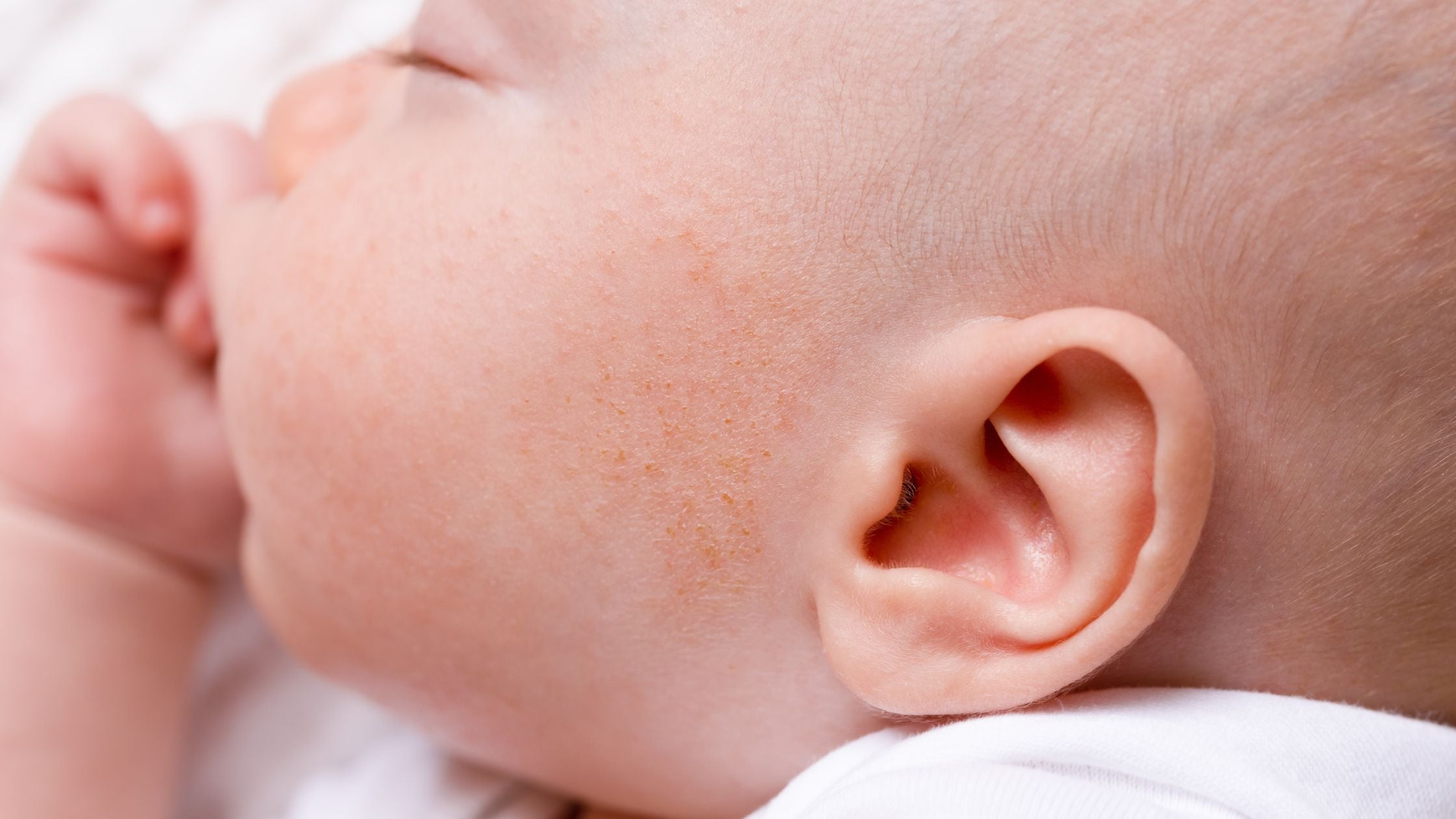What's the Difference Between Eczema and Dermatitis?

What’s the Difference Between Eczema and Dermatitis?
The words eczema and dermatitis are often used to talk about the same condition of itchy, inflamed and irritated skin. So, what’s the difference between eczema and dermatitis, or are they the same?
The main thing to keep in mind is that dermatitis is a broad term to describe skin inflammation. The term encompasses many different more specific conditions, including different types of eczema.
While there is no cure for eczema, there are ways you can help manage the condition and keep skin happy and hydrated. Our Natural Oatmeal Bath Soak and Eczema Moisturiser can both help with symptoms of mild eczema, and are suitable for babies, children and adults.
What type of dermatitis is eczema?
There are many kinds of dermatitis, and eczema is only one of them. There are also many different types of eczema, which may present different symptoms and require different treatments. You should consult with a medical professional to determine which type of eczema your little one has, so they can advise the most suitable management plan. Managing your little one’s eczema is important, as it can cause extreme discomfort and lead to broken skin and infections.
Atopic eczema, also known as atopic dermatitis, is of the most common forms of eczema. It’s a chronic condition characterised by itchy, dry, irritated skin that may have flakiness, raised bumps or crusted patches. It commonly appears on the face, inner elbows, back of knees, hands and feet but can affect different areas of the body.
Eczema happens when the skin barrier does not work as effectively as it should. This means the skin dries out and environmental allergens (which sufferers are hypersensitive to) irritate the damaged skin. When this happens, the immune system responds producing inflammation to attack the threat. This makes the skin red and itchy.
Those with a family history of allergic conditions, such as asthma or hay fever, are most likely to suffer from eczema. This is because their body is already on high alert to respond to allergens in the environment, such as pollen and dust.
What types of dermatitis commonly affect children?
As well as atopic dermatitis, there are a few other types of dermatitis that can commonly affect babies and children such as:
- Contact dermatitis: a local reaction when the skin comes into contact with an irritant (such as a chemical or scratchy clothing) or an allergen (such as grass).
- Seborrheic dermatitis: when the oil glands on the skin become inflamed and thick, yellow crusts form. When it appears on your little one’s scalp, it’s commonly known as cradle cap. Our Natural Scalp Oil is formulated to help with the flakiness associated with cradle cap.
- Dyshidrotic eczema: characterised by blisters on the soles of the feet and palms of the hands. The blisters can be itchy and may be connected with seasonal allergies.
Sometimes these appear together with atopic dermatitis. It is important to get a diagnosis from your doctor so you can understand and manage what is happening, and minimise flare-ups.
How do I treat dermatitis?
Specific treatment can vary depending on the type of dermatitis, which is why it’s essential to consult with a medical professional.
For atopic dermatitis, it’s generally important to:
- protect the skin from things that could irritate it, and
- care for the skin using a skincare routine to ensure it maintains the best condition and suffers less flare ups – you may find our Oatmeal Bath Soak and Eczema Moisturiser helpful for this.
Applying natural, soothing and nourishing products to the skin every day can help build up its protective barrier and stop it from drying out. It’s important to do this daily and stick to a consistent skincare routine that works for your child, even when there’s no flare-up. Doing this helps to keep the skin well hydrated and protect the skin barrier, which benefits the overall condition of the skin and can help to lessen symptoms of eczema.
This blog post was brought to you and your bub with love and care by the Itchy Baby Co. team. x
Disclaimer: Information provided is of a general nature only and you should always consult your medical professional.





